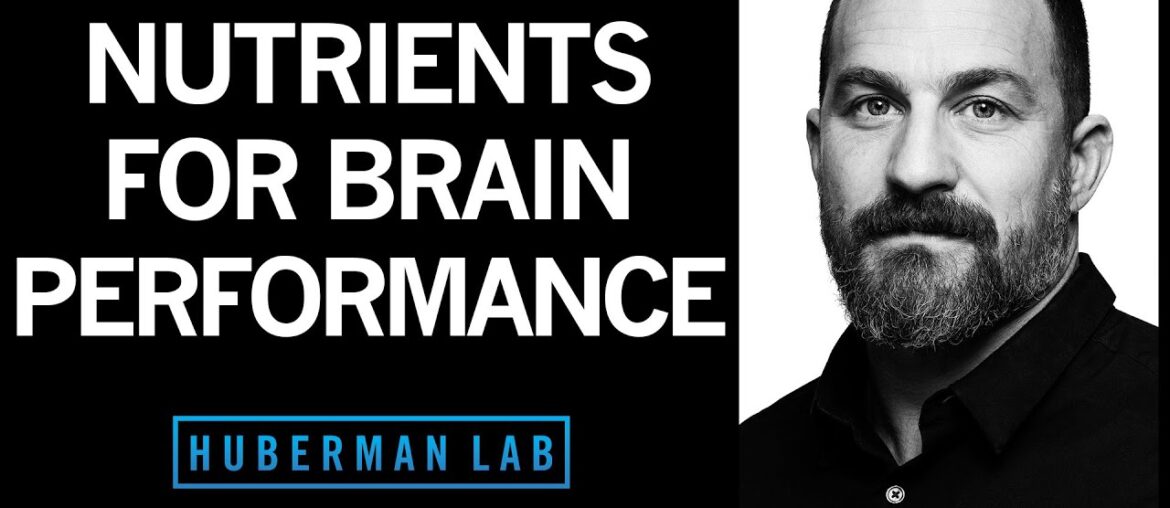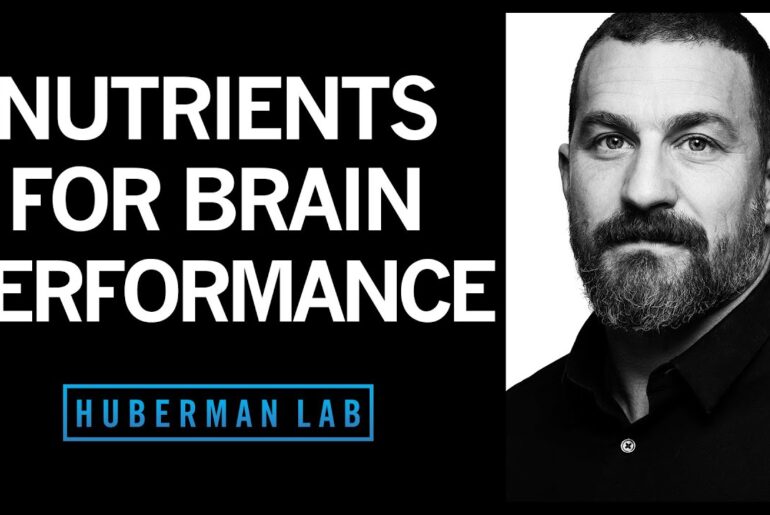
Surprisingly, the compound at the core of many fitness enthusiasts’ regimens, creatine, is now being scrutinized through a different lens for its potential impact on the brain. Beyond its role in muscle development, emerging research suggests that creatine and brain health may be significantly connected, with indications that its supplementation can enhance areas of cognitive function, particularly in populations like the aging or those with dietary limitations like vegetarians. As someone deeply fascinated by the nexus of nutrition and neuroscience, I’m intrigued by the cognitive effects of creatine supplementation, and the possibility that this commonly used supplement could be a key to unlocking new potentials in brain health.
While traditionally linked with athletic performance, my interest piques at the notion of creatine and cognitive function playing a synergistic dance that could lead to improved learning capabilities and memory retention. The scientific inquiry does not merely rest upon hypotheticals, as systematic reviews point to creatine’s enhanced effects on short-term memory and intelligence among healthy individuals. This sparks a crucial question within me: Could this unassuming substance, already found within our bodies, be a cornerstone for cognitive resilience and mental acuity?
Key Takeaways
- Research connects creatine, a muscle-enhancing supplement, with improvements in brain health and cognitive performance.
- Creatine supplementation may particularly benefit vegetarians and older adults regarding cognitive function.
- Systematic reviews and studies support creatine’s role in boosting short-term memory and reasoning abilities.
- The safety profile and hypothesized neuroprotective effects of creatine make it a compelling substance for study in brain health.
- Considering its prevalence and origin in the human body, creatine could be an accessible way to promote cognitive resilience.
- There’s a growing curiosity in the scientific community about how a supplement commonly associated with athletics might enhance cognitive capacities.
Introduction to Creatine and Brain Function
My focus today centers on the compelling role of creatine supplementation and improved memory, an area garnering significant scientific interest. Creatine, most recognized for its popularity among athletes, emerges as a key player in the domain of improved mental performance. This naturally occurring compound in the human brain has piqued the curiosity of researchers for its potential cognitive advantages, far beyond physical endurance and muscle strength.
Creatine and improved mental performance is not a novel concept; however, it has been invigorated by recent research suggesting its efficacy in enhancing cognitive functions in healthy individuals. Traditional narratives of creatine have been refashioned to encompass its neuroprotective capabilities, and its reputation for safety positions it as a promising candidate for testing in patients with cognitive impairments and dementias.
I shall explore various dimensions of this hypothesis, including mechanistic insights on how creatine functions in the brain, and what the latest findings imply for its use as a cognitive enhancer. As we dig deeper into the intricacies of this research, I invite you to consider the breadth of possibilities that creatine supplementation holds for the future of cognitive health and optimization.
Understanding How Creatine Works in the Body

In exploring the benefits of creatine on cognitive performance, it’s crucial to understand its biological mechanisms. Creatine is more than a supplement; it’s a naturally-synthesized compound that has a significant impact on energy metabolism, particularly within the brain. Here, we dive into how creatine supports the brain’s exhaustive energy demands and why it might influence processes like memory retention.
The Synthesis of Creatine
Our bodies create creatine using three amino acids: arginine, glycine, and methionine. This synthesis hinges on the smooth functioning of enzymes such as AGAT (arginine:glycine amidinotransferase) and GAMT (guanidinoacetate N-methyltransferase). Muscle tissues, including the heart, and the brain are the primary sites where creatine is stored, ready to be mobilized for energy production.
Creatine’s Role in Energy Supply
Within our muscles and brain cells, creatine is in a constant state of turnover, alternating between creatine and phosphocreatine. This creatine/phosphocreatine system is critical, acting as an energy reservoir to rapidly replenish ATP, the molecule that fuels cellular processes. Its role is particularly evident during activities that require short, intense bursts of energy, which aligns with its reputation in enhancing anaerobic athletic performance.
Neuronal Energy Demands and Creatine
Neurons, the functional units of the brain, consume a substantial amount of energy. They rely on the creatine/phosphocreatine system to maintain their function, especially under conditions that strain cognitive processes. By improving the energy available to these cells, creatine supplementation has the potential to support enhanced cognitive functions like learning, problem-solving, and memory retention.
| Cognitive Process | Benefits of Creatine |
|---|---|
| Memory Retention | Potential to improve short-term memory span |
| Energy-demanding tasks | Enhanced energy supply to neuronal cells |
| Cognitive Performance | May aid problem-solving and intelligence tests |
| Brain Health | Contributes to neuroprotection and plasticity |
The synthesis and function of creatine in the human body pave the way to understand how its supplementation could potentially enhance cognitive capabilities, such as memory retention and overall cognitive performance. The continuous research in this sphere remains exciting as we unlock the intricate ways our bodies utilize this multifaceted compound.
The Relationship Between Creatine and Cognitive Performance
Recent scientific discourse has increasingly centered on the impact of creatine on learning abilities, a topic that once garnered interest almost exclusively within sports nutrition circles. As a writer with a keen interest in the intersections of nutrition and neuroscience, I’ve been closely following the evolving research on creatine and enhanced learning capacity. Studies now suggest there may be a tangible link worth exploring further.
It didn’t escape my notice that genetic disorders affecting creatine synthesis can lead to cognitive deficits, a poignant reminder of the compound’s significance. Intriguingly, these deficits often show remarkable improvement with the administration of oral creatine supplements, weaving a narrative of reversal and hope. This indicates not only a correlation but a potential causation between creatine levels and cognitive function, one that underscores the importance of this supplement beyond muscle and into the realm of the mind.
Moreover, my foray into the literature revealed that mental training itself could increase cerebral creatine concentrations. These findings imply a symbiotic relationship where a brain engaged in learning might foster an environment ripe for the benefits of creatine supplementation. In essence, enhanced learning capacity and brain plasticity might be facilitated, in part, by this organic compound. Here’s a simple representation of these concepts:
| Cognitive Factor | Impact of Creatine Supplementation |
|---|---|
| Memory Function | Improvement in recall and working memory |
| Learning Ability | Potential enhancement in learning speed and adaptability |
| Neuronal Plasticity | Contribution to synaptic strength and plastic changes in the brain |
| Energy Homeostasis | Stabilization and support for energy-demanding cognitive tasks |
| Neuroprotective Effect | Possible reduction in neurodegeneration rates linked to cognitive decline |
Emerging from the glut of data is a compelling case for creatine’s role in supporting the brain’s demanding energy needs and perhaps, by extension, its learning capabilities. Curiosity piqued, I find myself compelled to not only report on these developments but to witness firsthand the potential cognitive enhancements creatine may offer.
The discourse surrounding the impact of creatine on learning abilities is at a nascent stage, yet there’s an earnestness in how the scientific community is rallying to understand and harness creatine’s full potential. As someone perpetually in pursuit of enhanced cognitive function and learning capacity, this scientific journey is a fascinating trek through the nexus of neurobiology and nutrition.
Effects of Creatine on Memory and Intelligence

As we delve into creatine and cognitive function, substantial findings have emerged regarding its positive impact on brain health. Particularly, creatine supplementation exhibits promising results in enhancing short-term memory and intelligence/reasoning abilities, capturing the interest of those keen on elevating their learning capacity.
Improvements in Short-Term Memory
A noteworthy aspect of creatine’s effect on cognitive function is its contribution to short-term memory enhancement. Vegetarians, often with lower baseline levels of creatine, have shown substantial benefits when supplementing, suggesting a direct link to cognitive performance.
Enhancements in Intelligence and Reasoning
Apart from memory improvements, ingestion of creatine has also been associated with elevated performance in tasks requiring advanced intelligence and reasoning. The effects of creatine on learning capacity have become an area of sharp focus, indicating potential benefits that span various aspects of brain health.
| Cognitive Domain | Effect of Creatine Supplementation | Population Segment |
|---|---|---|
| Short-Term Memory | Improvement | Vegetarians |
| Intelligence/Reasoning | Moderate Improvement | Adults (General) |
To sum it up, ongoing research continues to affirm the positive implications of creatine for bolstering cognitive prowess. The nuanced interplay between creatine and cognitive function underlines a future where this supplement might be regularly employed to foster enhanced cognitive capacities.
Exploring Creatine’s Impact on Various Cognitive Domains
My investigative journey into the cognitive effects of creatine supplementation has been a fascinating path of confluence and divergence. Cognitive enhancement is not just a monolith but a spectrum of various capacities such as memory, attention, and executive function. While creatine and brain health are intimately linked, the depths of their relationship and the extent to which different cognitive domains might be influenced by creatine remain areas of ongoing research and spirited discussion.
One of the core questions I pursued was whether creatine’s reputed enhancements in memory and intelligence translate to other, less-studied cognitive areas. The existing data present a mosaic where some studies affirm benefits in domains like spatial memory and attention span, while others report no significant impacts. To present these complexities in a structured form, I have compiled a table summarizing the findings from various studies, which spotlights the nuanced and sometimes contradictory results concerning creatine and brain health.
| Cognitive Domain | Reported Benefits | Lack of Significant Findings | Study Notes |
|---|---|---|---|
| Spatial Memory | Some individuals demonstrate improvements | Others show no change | Further study needed, possible variable responses |
| Attention | Increased concentration reported by some | Contradictory results in various age groups | Age may be a determining factor |
| Executive Function | Mild benefits in task-switching | Many studies do not show improvements | Potential dosage-dependent effects |
From the mosaic that is emerging from contemporary research, it’s clear that the discussion surrounding creatine is far more nuanced than anyone might have initially speculated. As I continue to delve into this fascinating intersection of nutrition and neurology, I remain committed to unraveling the threads that will eventually lead us to a clearer understanding of how creatine supplementation can be optimized to support cognitive health and performance.
Creatine Supplementation: Methodologies and Evidence

When evaluating the relationship between creatine and cognitive function, rigorous methodologies are instrumental in ensuring the reliability of findings. Randomized clinical trials (RCTs) stand at the forefront of such research, providing high-quality evidence on the impact of creatine supplementation and improved memory across different diets and lifestyles.
Analyzing Randomized Clinical Trials
Randomized clinical trials are the gold standard in clinical research due to their ability to minimize selection bias and provide robust causal inferences. In examining the cognitive benefits of creatine, these trials have utilized various cognitive tasks to assess areas such as memory recall, attention span, and problem-solving abilities. The design and implementation rigor inherent in RCTs offer credible insights into how supplementation can play a role in cognitive health.
Evidence from Vegetarian and Omnivore Populations
Participants’ dietary habits form a significant variable in creatine research. Studies consistently illustrate that vegetarians, who typically have lower baseline levels of creatine due to the absence of meat in their diets, display more pronounced cognitive enhancements upon creatine supplementation. Here’s a comparative overview:
| Diet Type | Baseline Creatine Levels | Improvement in Memory Tasks |
|---|---|---|
| Vegetarians | Lower | More significant |
| Omnivores | Higher | Less significant |
These dynamics suggest that creatine’s cognitive benefits may not only be linked to its supplementation but also to the existing dietary creatine intake, thereby encouraging a nuanced approach to recommendations and dosage.
Diving Into the Research: Key Studies on Creatine and Learning

As we explore the effects of creatine on learning capacity, it’s worth noting that the compound’s ability to serve as an energy buffer in the brain has sparked interest in its potential to boost cognitive tasks related to learning and memory. Research indicates that with creatine and enhanced learning capacity, there may be a significant link—especially for those with lower baseline levels of creatine, such as vegetarians. I’ve delved into several key studies to unpack the nuances of how creatine supplementation could impact learning.
Here is a breakdown of some pivotal studies examining the ingenious effects of creatine on learning capacity:
| Study | Participant Demographics | Creatine Dosing | Cognitive Tasks Assessed | Key Findings |
|---|---|---|---|---|
| Study A | Vegetarians | 5g/day for 6 weeks | Working Memory, Verbal Fluency | Improvement in both tasks, more pronounced in verbal fluency |
| Study B | Mixed diet participants | Varied dosing | Pattern Recognition, Reaction Time | Mild improvements with higher doses impacting reaction time |
As we analyze the data, I find it intriguing that the vegetarians often showed heightened responsiveness to creatine, possibly because their baseline levels are typically lower due to dietary restrictions. It’s also clear that dosing plays a crucial role, with studies suggesting there’s an optimal threshold to enhance cognitive benefits.
Furthermore, the research underscores the diverse impact creatine has across different cognitive tasks. For instance, tasks that require a rapid response or significant working memory load often show more beneficial outcomes following supplementation. As with any supplement, the context in which it is used—such as the individual’s diet and the type of cognitive functioning desired—plays a critical role in the efficacy of creatine for enhanced learning and cognitive performance.
Is Creatine Equally Effective for All? Demographics and Responsiveness

As I delve deeper into the realm of creatine and cognitive function, I’ve observed an intriguing pattern of responsiveness across different groups. It raises the question: does everyone experience the effects of creatine on memory retention and cognitive abilities uniformly? The answer seems to be nuanced, as various factors including diet and age come into play.
Differential Responses in Vegetarians and Meat-Eaters
One of the most fascinating contrasts appears between vegetarians and meat-eaters. Since creatine is naturally found in animal products, vegetarians tend to have lower baseline levels, which might explain the more marked cognitive improvements they often report upon supplementation. Let’s examine this through a comparative analysis:
| Demographic | Baseline Creatine Levels | Response to Supplementation | Reported Cognitive Improvements |
|---|---|---|---|
| Vegetarians | Lower | Significant | Enhanced Memory Retention |
| Meat-Eaters | Higher | Moderate | Mild Improvement in Cognitive Tasks |
Age and Cognitive Decline: Can Creatine Make a Difference?
Regarding the aging population, there’s a glimmer of hope that creatine supplementation might support cognitive resilience. The natural diminution of cognitive faculties could potentially be mitigated by creatine’s energy-enhancing properties. Although more research is needed, preliminary findings are promising and warrant a closer look.
The varying effects of creatine across demographics underscore the importance of personalized approaches when considering it for cognitive enhancement. Clearly, what works for one individual may not be as effective for another. This calls for tailored strategies in leveraging creatine’s potential to support brain health and function.
Conclusion
In my analysis of current research, I’ve observed that creatine supplementation may indeed have subtle, yet noteworthy impacts on cognitive performance, particularly pertaining to learning capacity. The scientific community continues to explore the true extent of the benefits of creatine on cognitive performance, recognizing that evidence points towards potential cognitive enhancement, especially in areas like memory and critical thinking.
While the evidence is promising, it is imperative to acknowledge that more comprehensive research is required to definitively conclude the supplement’s effectiveness. The translation of these initial findings into concrete health recommendations will depend on future studies with larger sample sizes and robust methodologies. However, given the low risk associated with creatine intake and its widespread availability, even a modest augmentation in cognitive function could be of significant value to various segments of the population.
As we tread further into the exploration of nootropics and cognitive enhancers, creatine reveals itself as a potential key player in the ever-evolving narrative of brain health. Personally, I remain eager to witness how the continued scrutiny of creatine’s effects on learning capacity will elicit a deeper understanding of how we can optimize cognitive performance through nutritional supplementation. And to my readers, I recommend keeping a watchful eye on this unfolding story, as it may just influence the future of cognitive health interventions.
FAQ
What effects does creatine have on learning capacity?
Research suggests that creatine supplementation can improve certain cognitive functions related to learning capacity, such as short-term memory and intelligence/reasoning, especially in healthy individuals.
How does creatine support brain health?
Creatine is essential for brain health as it plays a critical role in supplying energy to brain cells. It also offers neuroprotective benefits that may contribute to overall cognitive function.
Can creatine improve cognitive function?
Yes, studies indicate that creatine can enhance cognitive performance, particularly in tasks requiring memory and intelligence, and it might also contribute to better mental performance overall.
How does creatine improve memory?
Creatine supplementation has been linked to improved short-term memory and quicker information processing, likely by increasing the energy available to the brain.
What is the role of creatine in the body’s energy supply?
Creatine is involved in the storage and transportation of energy within cells, especially in muscle and brain tissue, which require significant energy for normal function.
Are the cognitive effects of creatine supplementation similar across all cognitive domains?
The cognitive effects of creatine are more consistently observed in domains related to memory and intelligence, but results in other areas like attention and executive function are mixed and require further research.
What populations might benefit most from creatine supplementation?
Vegetarians, who typically have lower levels of creatine due to dietary restrictions, and aging individuals may experience more pronounced cognitive benefits from creatine supplementation.
How reliable is the evidence for the cognitive benefits of creatine?
While some studies have shown promise, the overall consensus is that more extensive, well-designed trials are needed to conclusively determine the cognitive benefits of creatine supplementation.
Does creatine have the same effect on everyone?
No, the effects of creatine on cognition can vary based on dietary habits, as vegetarians usually respond better to supplementation, and age, where older adults might see greater cognitive improvements.
Is creatine supplementation safe?
Yes, creatine is widely considered safe for most people when taken at recommended doses, and it has been extensively used as a dietary supplement for athletic performance without significant adverse effects.




